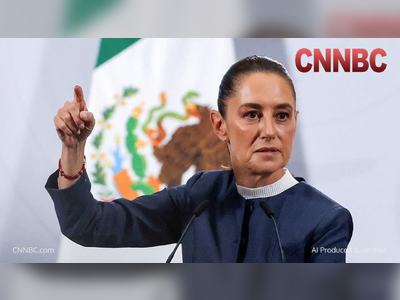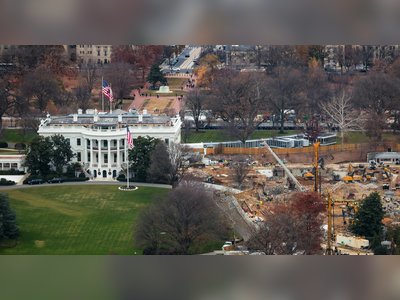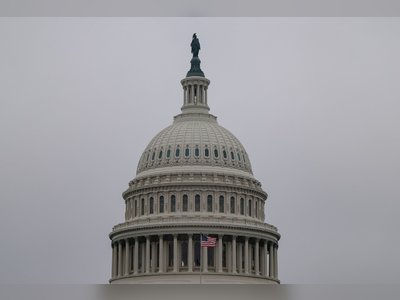
Hope on the Horizon: Ceasefire in Gaza Nears Agreement Amid Intense Negotiations
Diplomatic efforts by the US, Qatar, and Egypt bring Israel and Hamas to the brink of a ceasefire deal, as humanitarian and political stakes climb.
The prolonged and harrowing conflict between Israel and Hamas in Gaza may be inching towards a pivotal pause.
Over the weekend, US Secretary of State Antony Blinken proclaimed that negotiations for a ceasefire were 'right on the brink,' signifying potential progress after intensive diplomatic talks in Qatar, involving prominent global actors including the United States, Egypt, and Qatar itself.
The discussions, categorized as a 'final round,' have involved envoys from both the current Biden administration and the incoming Trump administration.
The ceasefire deal, reportedly under critical negotiation, prescribes the initial release of 33 Israeli hostages in exchange for up to 1,000 Palestinian prisoners and a partial troop withdrawal by Israel over a 60-day phase.
This staged approach also sets the foundation for further talks concerning the release of remaining hostages, alongside full military withdrawal.
However, as Tuesday night ended without a finalized agreement, Israeli and Hamas representatives emphasized the need for more detailed discussions, particularly regarding the geographical implications of troop movements.
Simultaneously, Gaza continues to reel from devastation.
Over the past 15 months of conflict, more than 46,000 individuals have lost their lives, and a staggering percentage of the population is displaced.
Despite ongoing military engagements, an air of cautious optimism blankets the region, driven by the human cost and the juxtaposed hope of impending peace.
Persistent Israeli airstrikes, such as those seen in recent locations including Deir al-Balah and Khan Younis, emphasize both the urgency and fragility of a diplomatic resolution.
Beyond the immediate parties, Blinken has articulated a prospective post-conflict settlement vision involving a united leadership for Gaza and the West Bank under a reformed Palestinian Authority — a prospect met with Israeli resistance.
This vision hinges upon substantial international involvement, potentially including new security provisions and humanitarian aid facilitation.
The negotiations are set against a broader backdrop of regional turbulence.
The spillover effects manifest in Yemen, where Houthi rebels have launched missile attacks on Israel, and the historical tension with Hezbollah continues to simmer.
Yet, amid these dynamics, unprecedented efforts have been undertaken to close this bloody chapter.
The role of Egypt and Qatar as mediating influencers in seeking a solution is underscored by high-level diplomatic exchanges, such as President Joe Biden's recent dialogue with Egyptian President Abdel-Fattah al-Sisi.
The leaders reportedly expressed optimism about aligning on a ceasefire agreement.
With diplomatic timers ticking against numerous humanitarian and political clocks, involved parties are acutely aware of the crucial need for constructive dialogue.
As Hamas and Israeli delegations grapple with technicalities of a potential détente, the echo of unresolved human desperation lends an ever-urgent call for peace — an aspiration shared not just by negotiators, but more crucially by the thousands who remain in Gaza, awaiting relief and reimagined futures.
Over the weekend, US Secretary of State Antony Blinken proclaimed that negotiations for a ceasefire were 'right on the brink,' signifying potential progress after intensive diplomatic talks in Qatar, involving prominent global actors including the United States, Egypt, and Qatar itself.
The discussions, categorized as a 'final round,' have involved envoys from both the current Biden administration and the incoming Trump administration.
The ceasefire deal, reportedly under critical negotiation, prescribes the initial release of 33 Israeli hostages in exchange for up to 1,000 Palestinian prisoners and a partial troop withdrawal by Israel over a 60-day phase.
This staged approach also sets the foundation for further talks concerning the release of remaining hostages, alongside full military withdrawal.
However, as Tuesday night ended without a finalized agreement, Israeli and Hamas representatives emphasized the need for more detailed discussions, particularly regarding the geographical implications of troop movements.
Simultaneously, Gaza continues to reel from devastation.
Over the past 15 months of conflict, more than 46,000 individuals have lost their lives, and a staggering percentage of the population is displaced.
Despite ongoing military engagements, an air of cautious optimism blankets the region, driven by the human cost and the juxtaposed hope of impending peace.
Persistent Israeli airstrikes, such as those seen in recent locations including Deir al-Balah and Khan Younis, emphasize both the urgency and fragility of a diplomatic resolution.
Beyond the immediate parties, Blinken has articulated a prospective post-conflict settlement vision involving a united leadership for Gaza and the West Bank under a reformed Palestinian Authority — a prospect met with Israeli resistance.
This vision hinges upon substantial international involvement, potentially including new security provisions and humanitarian aid facilitation.
The negotiations are set against a broader backdrop of regional turbulence.
The spillover effects manifest in Yemen, where Houthi rebels have launched missile attacks on Israel, and the historical tension with Hezbollah continues to simmer.
Yet, amid these dynamics, unprecedented efforts have been undertaken to close this bloody chapter.
The role of Egypt and Qatar as mediating influencers in seeking a solution is underscored by high-level diplomatic exchanges, such as President Joe Biden's recent dialogue with Egyptian President Abdel-Fattah al-Sisi.
The leaders reportedly expressed optimism about aligning on a ceasefire agreement.
With diplomatic timers ticking against numerous humanitarian and political clocks, involved parties are acutely aware of the crucial need for constructive dialogue.
As Hamas and Israeli delegations grapple with technicalities of a potential détente, the echo of unresolved human desperation lends an ever-urgent call for peace — an aspiration shared not just by negotiators, but more crucially by the thousands who remain in Gaza, awaiting relief and reimagined futures.












